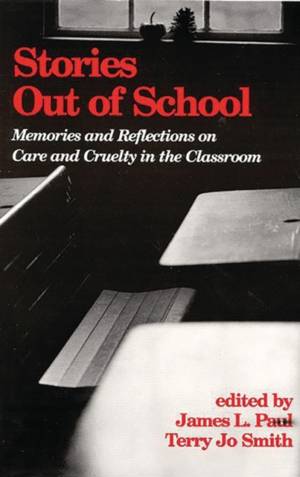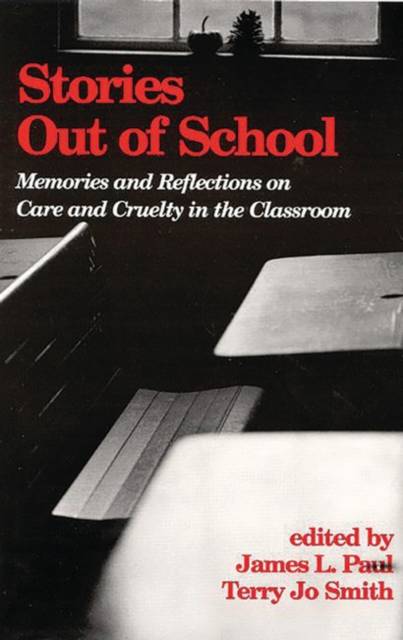
Je cadeautjes zeker op tijd in huis hebben voor de feestdagen? Kom langs in onze winkels en vind het perfecte geschenk!
- Afhalen na 1 uur in een winkel met voorraad
- Gratis thuislevering in België vanaf € 30
- Ruim aanbod met 7 miljoen producten
Je cadeautjes zeker op tijd in huis hebben voor de feestdagen? Kom langs in onze winkels en vind het perfecte geschenk!
- Afhalen na 1 uur in een winkel met voorraad
- Gratis thuislevering in België vanaf € 30
- Ruim aanbod met 7 miljoen producten
Zoeken
Stories Out of School
Memories and Reflections on Care and Cruelty in the Classroom
James Paul, Terry Smith
Paperback | Engels
€ 76,45
+ 152 punten
Omschrijving
The changes in how we understand and study teaching and learning are uneven. Strongly held beliefs support the changes and equally strongly held beliefs challenge them. However, the discourse about teaching and learning and our understandings of the nature of educational research have changed rather dramatically in the last two decades. These changes form the context for the work described in this book on stories out of school-adult memories of their teachers. The authors have been guided by the work of Jackson (1992), Noddings (1992), Eisner (1998), Palmer (1998), Coles (1989), and Lindley (1993), among others, who have focused on the qualities of life experienced by children, particularly in the classroom. Interests have centered on memory, meaning, and the self in relationship. Using a database of letters written by adults (most of whom are teachers or are preparing to be teachers) to their former teachers, the authors examine the interpersonal spaces shared by teachers and students and the kinds of unacknowledged pedagogies created in those spaces. They are interested in the ethics of experienced pedagogies and the implications of those pedagogies for educating teachers.
Specificaties
Betrokkenen
- Auteur(s):
- Uitgeverij:
Inhoud
- Aantal bladzijden:
- 176
- Taal:
- Engels
Eigenschappen
- Productcode (EAN):
- 9781567504774
- Verschijningsdatum:
- 31/03/2000
- Uitvoering:
- Paperback
- Formaat:
- Trade paperback (VS)
- Afmetingen:
- 151 mm x 228 mm
- Gewicht:
- 299 g

Alleen bij Standaard Boekhandel
+ 152 punten op je klantenkaart van Standaard Boekhandel
Beoordelingen
We publiceren alleen reviews die voldoen aan de voorwaarden voor reviews. Bekijk onze voorwaarden voor reviews.









